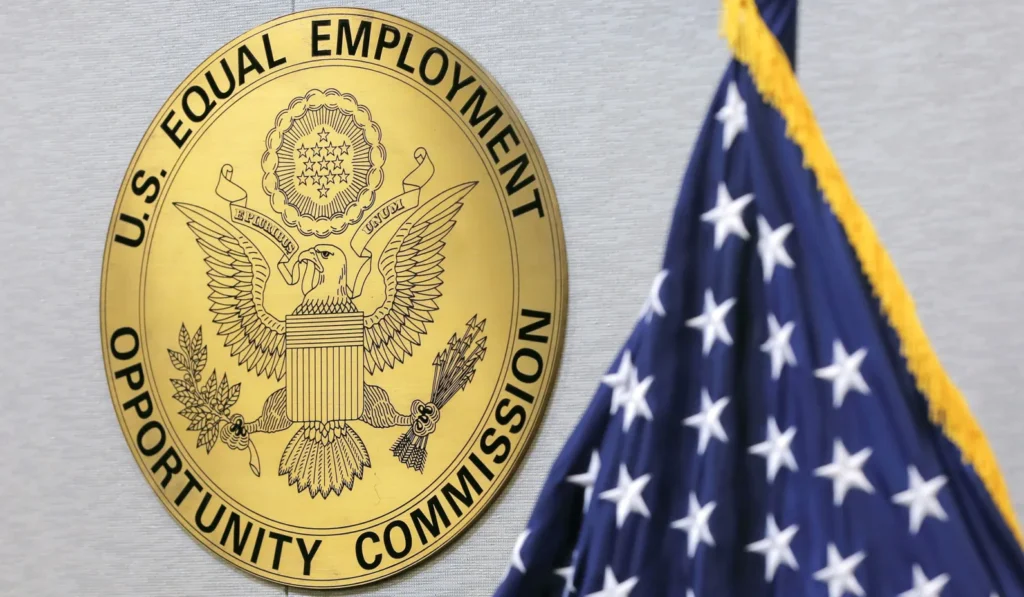
Published October 5, 2023
Rarely, in this politically polarized time, do members of both parties, as well as Planned Parenthood and the United States Conference of Catholic Bishops, work together to enact a statute. Yet that is what happened with the Pregnant Workers Fairness Act (PWFA).
The act passed by Congress in December 2022 fills a long-standing gap in employment-discrimination law. It requires employers to provide reasonable accommodations to employees for “known limitations related to [] pregnancy, childbirth, or related medical conditions” unless the accommodation poses undue hardship on the employer. Accommodations may include such things as light duty, additional bathroom breaks, and a stool to sit on. The act was intended to provide “a safe environment for pregnant women and their unborn children in the workplace.” In the words of PWFA co-sponsor Senator Bill Cassidy (R., La.), the law is “pro-mother” and “pro-baby.”
Another statute, Title VII of the Civil Rights Act of 1964, was amended in 1978 to include “pregnancy, childbirth, or related medical conditions” in its prohibition against sex discrimination. However, Congress intentionally withheld from the Equal Employment Opportunity Commission (EEOC), the federal agency charged with enforcing both Title VII and the PWFA, the power to issue binding regulations under Title VII. Instead, the EEOC issues only nonbinding guidance.
In contrast, Congress gave the EEOC rulemaking authority under the PWFA. The PWFA opened a door for EEOC to exercise its long-suppressed desire to issue broader binding regulations related to sex discrimination — regulations that are far broader than those the pro-pregnancy and pro-childbirth PWFA would require. Indeed, the EEOC is trying to use the PWFA as an occasion to regulate way beyond pregnancy, childbirth, and related medical conditions to mandate accommodations for even the opposite — abortion. Never mind the word “abortion” not appearing once in the act, and PWFA co-sponsor Senator Bob Casey (D., Pa.) stating the EEOC “could not . . . issue any regulation that requires abortion leave.”
The EEOC proposes interpreting the PWFA’s protection of “pregnancy, childbirth, or related medical conditions” to require accommodations for potential or intended pregnancy, birth control, menstruation, infertility, fertility treatments, endometriosis, or having or choosing not to have an abortion, among other conditions in its “non-exhaustive” list.
The EEOC’s list is more aptly described as “related to reproduction” generally rather than related to pregnancy and childbirth. Indeed, the use of birth control and abortion are anti-pregnancy and anti-childbirth.
Potential or intended pregnancy, menstruation, infertility, and fertility treatments relate to reproduction but may never relate to an actual pregnancy. Under the EEOC’s expansive proposal, the PWFA would require employers to accommodate workers who will never be pregnant.
The EEOC says it is giving the PWFA’s phrase “pregnancy, childbirth, or related medical conditions” the same meaning as under Title VII. In its nonbinding Title VII pregnancy guidance, the EEOC states: “Title VII protects women from being fired for having an abortion or contemplating having an abortion.” While some lower courts have agreed with the EEOC’s position, the U.S. Supreme Court has not addressed the issue of whether Title VII protects employees from abortion discrimination.
In its proposed PWFA regulations, the EEOC fails to take into account one very important distinction between Title VII and the PWFA. Whereas Title VII prohibits discrimination in the workplace based on sex (including pregnancy, childbirth, and related medical conditions), the PWFA requires accommodation of “known limitations related to [] pregnancy, childbirth, or related medical conditions.”
Accommodation, unlike nondiscrimination, requires the actual existence of a protected trait.
By way of example, in the disability context, the Americans with Disabilities Act (ADA) — another law enforced by the EEOC — both prohibits employers from discriminating against employees based on disability and also requires employers to provide accommodations for disability. In other words, the ADA covers both an anti-discrimination mandate (as does Title VII for pregnancy) and an accommodation mandate (as does the PWFA).
An employer violates the ADA when it discriminates based on disability by refusing to promote an employee whom it merely suspects of having a disability, even if the employee does not actually have a disability. The same employer, however, has no legal obligation to provide an accommodation for the employee unless the employee actually has a disability.
The same is true in the context of religion. Title VII both prohibits employers from discriminating against employees based on religion and also requires employers to provide accommodations for religion. An employer violates Title VII when it fails to hire a woman because the employer believes her to be Muslim, even if she is not. But the same employer is required to accommodate her hijab or prayer breaks only when, in fact, those things are a part of her religious observance.
So too it should be in the context of pregnancy. The anti-discrimination mandate for pregnancy is covered by Title VII, which prohibits employers from discriminating against employees whom they merely suspect may be pregnant, or who gave birth, or who have related medical conditions.
The accommodation mandate for pregnancy is covered by the PWFA. Unlike the ADA and Title VII, the PWFA is only an accommodation statute; it does not otherwise address discrimination.
The PWFA requires employers to accommodate pregnancy, childbirth, and related medical conditions only where such conditions actually exist. The PWFA does not oblige an employer to accommodate a pregnancy that does not yet, and indeed may never, exist. Nor does the PWFA oblige an employer to accommodate acts that are inherently anti-pregnancy and anti-birth such as the use of birth control and abortion.
If this law was about mandating abortion accommodations, it would not have benefited from widespread support from Republicans, religious organizations, and pro-life groups. It would have garnered a congressional fight that likely would have resulted in its demise.
In issuing regulations implementing the PWFA, the EEOC should honor the text of the PWFA and require accommodations only for those women who are actually going through pregnancy, childbirth, and related medical conditions. Abortion mandates have no place in a law passed to accommodate women who are experiencing pregnancy and childbirth.
Rachel N. Morrison is a fellow at the Ethics and Public Policy Center, where she directs EPPC’s HHS Accountability Project. She is a former attorney adviser at the Equal Employment Opportunity Commission.
Rachel N. Morrison is a Fellow at the Ethics and Public Policy Center, where she directs EPPC’s HHS Accountability Project. An attorney, her legal and policy work focuses on religious liberty, health care rights of conscience, the right to life, nondiscrimination, and civil rights.











